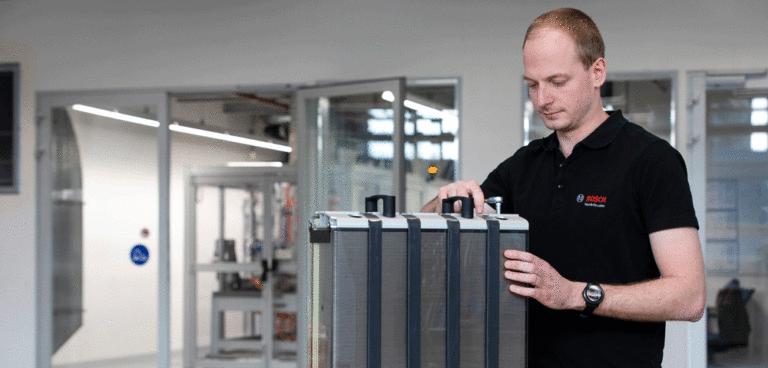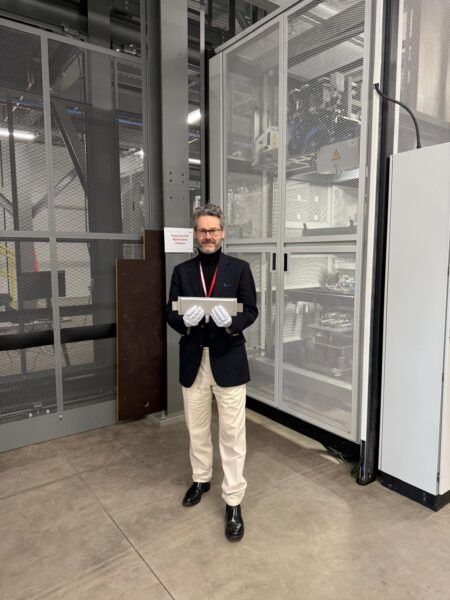Bosch is entering the market for mobile fuel cells for trucks and cars, and has formed an alliance with Powercell Sweden, a Swedish manufacturer of fuel-cell stacks.
Under the agreement, the two partners will work jointly to make the polymer-electrolyte membrane (PEM) fuel cell ready for production. Bosch will then manufacture this technology under license for the global automotive market. The stack will complement the Bosch portfolio of fuel-cell components, and is to be launched in 2022 at the latest.
“In the fuel-cell domain, Bosch already has a strong hand, and the alliance with Powercell makes it even stronger. Commercializing technology is one of our strengths. We are now going to take on this task with determination and develop this market,” says Stefan Hartung, member of the Bosch board of management and chairman of the Mobility Solutions business sector.
“With the combined weight of its clout and expertise, Bosch will provide our fuel-cell technology with the chance to gain a foothold in the automotive market. We couldn’t imagine a better partner than Bosch for this,” says Per Wassén, CEO of Powercell.
Bosch believes the best opportunities for broad adoption of fuel-cell technology are in the commercial-vehicle market. The EU’s fleet requirements for trucks call for a reduction of CO2 emissions by an average of 15% by 2025, and 30% by 2030. Bosch believes this target can only be reached by electrifying more of the powertrain. Once fuel cells have become established in trucks, Bosch believes fuel-cell powertrains will then increasingly find their way into passenger cars – although for this to happen, the cost of fuel-cell systems needs to be progressively reduced. The stack accounts for nearly two-thirds of the total cost of a fuel-cell system.
“Through commercialization and widespread marketing of this technology, Bosch will achieve economies of scale and push down costs,” says Hartung.
As well as PEM fuel cells, Bosch is already actively involved in solid-oxide fuel cells (SOFC). Since the middle of last year, Bosch has been working with British specialist Ceres Power to further improve SOFC technology for applications such as distributed power supplies to factories and computing centers. The idea behind the technology is to have small power stations set up throughout cities, as well as in industrial areas. Because these standardized plants are highly flexible, they will be able to cover peak demand better than conventional plants. The aim is for one SOFC module to generate 10kW of electrical power. Where more electricity is needed, any number of modules with the same output can simply be interconnected. 





